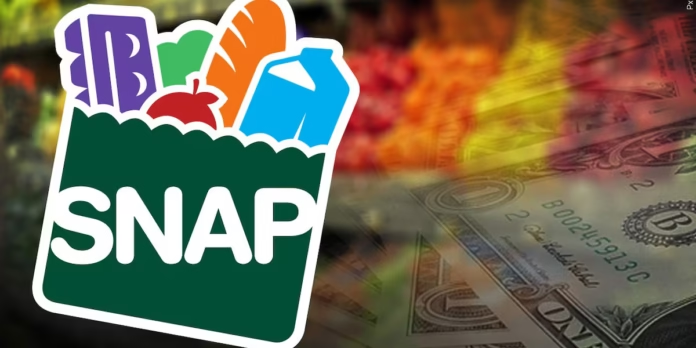In back-to-back rulings delivered late October 2025, two federal district court judges blocked the United States Department of Agriculture (USDA) from suspending payments under the Supplemental Nutrition Assistance Program (SNAP) during the ongoing federal government shutdown. The decisions could have immediate implications for roughly 42 million Americans who rely on monthly food-assistance benefits.
The Legal Challenge
With appropriations for the 2025 fiscal year stalled and the government shutdown in its fifth week, the USDA announced it would cease SNAP payments starting November 1 unless Congress acted. The agency claimed it lacked available funds.
In response, a coalition of 25 states and the District of Columbia (led by Democratic attorneys general and several governors) sued in the U.S. District Court for the District of Massachusetts, arguing that the USDA must tap a pre-existing “contingency fund” for SNAP — approximately $5 billion in reserves that previous USDA budget documents anticipated could be used in a shutdown scenario.
Simultaneously, in Rhode Island, a separate suit brought by cities, non-profits and a union challenged the USDA’s decision not to use the contingency fund in the U.S. District Court for the District of Rhode Island.
The Massachusetts Ruling (Judge Indira Talwani)
On October 31, 2025, Judge Indira Talwani issued a Memorandum & Order concluding that the USDA’s decision to suspend SNAP payments during the shutdown was “erroneous” and unlawful under the statute governing USDA food-assistance programs.
Key findings:
- The USDA argued the contingency fund could not be used in a shutdown absent a fresh appropriation from Congress; the court disagreed, finding that the statute permits use of previously appropriated contingency funds when “necessary” to maintain SNAP.
- Talwani wrote: “Defendants’ suspension of SNAP payments was based on the erroneous conclusion that the Contingency Funds could not be used to ensure continuation of SNAP payments.”
- While she did not immediately order full payment for November benefits, she gave the USDA a deadline — by Monday following the order — to explain how it would fund SNAP, including whether it would use the contingency fund or other available funding.
The Rhode Island Ruling (Judge John J. McConnell Jr.)
On the same day, Judge John J. McConnell Jr. in Rhode Island held an emergency hearing and ruled the USDA’s decision not to use the contingency fund was “arbitrary, capricious and contrary to law.” He ordered an immediate plan for SNAP funding and directed the administration to report back by noon Monday with its plan to distribute the contingency funds or other funds to maintain benefits.
In his order, McConnell stressed the “irreparable harm” that would begin immediately if food‐aid payments stopped — noting the “terror” experienced by households facing the loss of benefits.
Implications for the USDA and Beneficiaries
These rulings mark a significant check on the executive branch during the funding impasse. By enforcing the requirement that SNAP must continue via contingency funds, the courts reaffirmed that the USDA cannot forgo legally-mandated obligations simply because appropriations have lapsed.
For millions of low-income Americans, the decisions may mean the difference between receiving food-aid benefits in November or being cut off. However, the amount, timing and full execution of payments remain uncertain because the USDA still must act, and the agency may appeal the orders.
Why the Court Found the USDA’s Position Unlawful
- The Food and Nutrition Act instructs that assistance under SNAP “shall be furnished to eligible households.” The USDA’s plan to stop benefits unless Congress provided fresh appropriations would conflict with that statutory directive.
- The USDA had itself previously described the contingency fund as available in shutdown scenarios, but then changed course. The courts found the USDA’s reversal unsupported by reasoned explanation.
- The contingency fund was created precisely for scenarios like a funding lapse. The courts concluded that refusing to use it simply because Congress has not passed a full appropriation undermines the statute’s purpose.
Broader Political and Practical Context
The rulings come amid one of the longest federal funding standoffs in modern U.S. history. The House of Representatives passed the so-called “clean” continuing resolution (H.R. 1968) in March, but the Senate has voted more than a dozen times without clearing the 60-vote cloture threshold. Meanwhile, President Donald Trump has publicly stated he will not meet with Democratic leaders to negotiate until the shutdown ends — a refusal the courts’ intervention now puts additional pressure on.
What Happens Next
- The USDA must now file compliance reports showing how it plans to fund SNAP benefits, including whether it will draw from the contingency fund and how much will be distributed.
- Beneficiaries and states should monitor whether payments resume “on or about” the usual schedule in November.
- The USDA may appeal the rulings to the U.S. Court of Appeals, prolonging uncertainty.
- The decisions set precedent: during funding lapses, agencies must look to contingency or reserve funds when a statute mandates ongoing assistance, and cannot rely solely on appropriations’ absence as a justification for stopping benefit payments.











